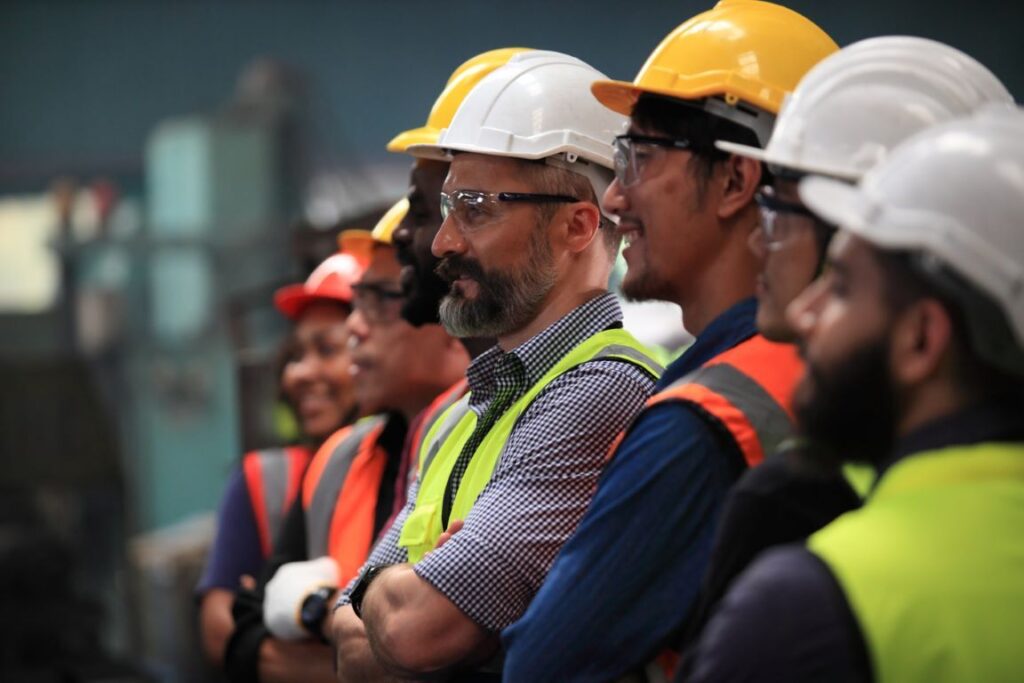
Why Due Process Matters in Workers’ Comp Cases
-
Jan 11, 2024
-
Blog
-
Michael Burgis & Associates, P.C
Injured at work in California? Feeling the weight of a dragging workers’ comp case? Let’s dive deep into the magic word that can revolutionize your case: due process.
Michael Burgis, a certified legal specialist in California Workers’ Compensation, pulls back the curtain on the intricate world of workers’ compensation cases in the Golden State. As the managing attorney of Michael Burgis & Associates (MB&A), Michael possesses a unique blend of expertise and passion to champion the rights of injured workers.
For many, the term ‘due process’ remains shrouded in mystery. Yet, it’s a cornerstone of the legal system, ensuring fairness and justice. Whether you’re an attorney or an injured worker, understanding both procedural and substantive due process can be a game-changer. Put simply, it’s your constitutional right to life, liberty, and the pursuit of happiness. And guess what? It shouldn’t be taken from you without proper legal proceedings.
But here’s the twist. Due process isn’t a one-size-fits-all concept. It varies, especially in the workers’ comp landscape. In Michael’s real-time case, he represents an injured worker, fighting for his right to a 100% disability award – an entitlement of two-thirds of his salary for life. Shockingly, the insurance company is paying him a mere $290 per week. Why? Delays, legal loopholes, and a skewed interpretation of due process.
Defense attorneys may argue their right to conduct discovery to minimize their liability. But when does their due process infringe upon the rights of the injured worker? After all, injured workers in California have a constitutional right to a swift resolution without unnecessary delays, as enshrined in the California constitution Article 14, Section 4. So, what’s the balance? Michael’s approach is to weigh both sides’ respective due process rights, their positions, potential impacts, and diligence in the case.
An essential takeaway is that a keen understanding and application of due process can expedite case resolutions. For instance, if the defense has had ample time (like five years since an injury) and hasn’t acted diligently, their due process claims might be weak. Especially when stacked against an injured worker’s pressing needs, like the one struggling on $290 a week.
If you’re an injured worker or represent one, wield due process as your sword. Surprisingly, few harness its full potential in arguments or briefs. But with it, you can close discovery swiftly, set a trial date, and prioritize the applicant’s rights over defense strategies.
Stay informed, stay ahead. Michael Burgis & Associates is committed to keeping you updated with the latest in workers’ comp law, ensuring you’re always a step ahead of defense attorneys and insurance tactics. Found this enlightening? Like, subscribe, and reach out. At MB&A, we’ve got the answers, and we’re always here to help.
Transcript
Are you an injured worker in California and you have a workers’ comp case that just seems to be taking forever? Or are you an applicant attorney looking for a way to quickly get your case resolved for your client’s best interest? There’s a fundamental word you need to understand, and it’s called due process.
An injured worker has a constitutional right to due process. A lot of people say this word, but they don’t know what that word means or how to use it. I’m going to explain in this video what it is and how you can use it with a real case that I’m in the middle of trial now.
Hi, my name is Michael Burgis. I’m a certified legal specialist in California Workers’ Compensation. I’m a trial attorney and I’m the managing attorney of MB&A.
What Is Due Process?
What is due process? If you’re an attorney, or even an injured worker, maybe you’ve heard this phrase. Most people don’t even know what it means, or if they know what it means, they don’t know what to do with it or how it works in context. But due process is this—you can’t have a “taking” without due process.
There’s procedural due process, and substantive due process. But I’ll just make this easy. Due process is this: you have a right to life, liberty, and the pursuit of happiness. And it can’t be taken from you without due process of law. And both parties have due process and most people don’t realize that due process is not static. What it means is it’s a moving target and I’ll explain.
Due Process in a Workers’ Comp Case
In the workers’ comp context—and I’m going to put an example of a case I’m literally on trial now on—I have an injured worker who I’m arguing has a brain injury and he’s not getting the money he needs to survive. And I’m arguing he is 100% disabled and 100% disability is two thirds of his salary for the rest of his life.
Defendant’s Due Process
But instead of paying that, the insurance company is paying him $290 per week. Now, the defense is not ready for trial because the record right now, the way it is established, I believe my client is clearly entitled to 100% disability award and they don’t want to go to trial based on that record. So what they want to do is further develop the record, kick the can down the line to see if they can find some information to reduce their liability and make it so that either I can’t successfully argue for a 100% disability or that there’s a valid legal apportionment so that my client is not entitled to a 100% award.
So relative due process, the defense says, “Hey, I have the right to conduct discovery. He’s asserting that he has a 100% disability. That’s a lot of money. I have the right to conduct discovery to get all of the relevant records and to be afforded my due process to make sure I have a fair chance at litigating this case. And if I’m able to if the injured worker’s entitled 100 percent disability, so be it. But I have the right to investigate to see if I can fight the case the best way I can.”
Injured Worker’s Due Process
Injured worker’s due process. They have a constitutional right under California Constitution Article 14, Section 4, that basically says you have a right to an expeditious resolution without encumbrance, right? What does that mean? Injured worker’s due process is to have a quick resolution and administrating the benefits they are legally entitled to. So there’s due process. He wants a quick resolution. They want to keep delaying it to find the information that could help their case. So where is it? Right.
Evaluating Both Parties’ Due Process Rights
The truth is you have to look at both parties’ respective due process and their respective positions and their respective detrimental impacts if one person is afforded their due process over the other. So let’s do that analysis here. And you also have to look at diligence. Was somebody afforded their respective due process and they didn’t act diligent? Right.
Diligence in a Workers’ Comp Case
So obviously, the law is going to reward the person who is diligent and penalize the person who’s not diligent. And again, you look at respect for due process. So this is how a good attorney should frame the issues, utilizing constitutional due process to make sure to close discovery and get you to trial and get that benefit quickly.
Now, framing it, the defendant’s due process in this case is the county of Los Angeles. They want to conduct further discovery, but it’s been over five years since the injury. So I’m able to show that they had plenty of time to do what they wanted to do to depose my client, subpoena whatever records they thought were necessary, send these to all the agreed medical examiners, and that they failed to act diligently. But their due process is, “Hey, we want to see if there’s some information that could minimize our exposure. And we believe we’ve acted diligently.”
Respective Due Process
Inversely… counter, the injured worker has a brain injury and should be receiving two thirds of their salary and they’re getting $290 a week. Look at that respective due process.
Your Honor, if we afford defendant their asserted due process, my client is absolutely violating their due process. And this guy may not be able to eat. Luckily, this client doesn’t have children because there’s no way that an injured worker like this would be able to support their family. But the relative due process, I mean, it isn’t even the question here.
So if you’re an injured worker or you’re an injured worker’s attorney, due process is one of the biggest swords you have to get justice for your client. And I rarely hear anyone argue due process, yet alone, you know, cite to it in briefs.
But the way you can get discovery closed and get a trial date is by accurately framing the issues on due process and how defendant’s asserted due process is a per se violation of applicant’s due process and applicant’s due process should supersede given the respective positions and detrimental impact.
Contact a Workers’ Compensation Attorney in Los Angeles
I hope you found this video helpful or informative. If you have any questions or concerns, obviously we’re here. We’re standing by. We issue new content to stay apprised with the law and stay a step ahead of the defense attorneys and these insurance games. So, again, if you like it, please like and subscribe below and feel free to give us a call. We’ve got the answers and we’re here to help.
Jerry DiLeva
"Michael told me that he was going to do the best he can for me, my family, and for my future needs. He's surrounded by a staff. A staff so excellent they're very knowledgeable, professional, and very kind, courteous ... If you're really serious in a workman's comp case what can I say Michael Burgis is the guy. His staff will treat you right, you'll go in the right direction and I guarantee you will win."
See What Our clients say






